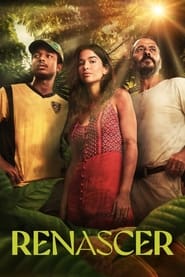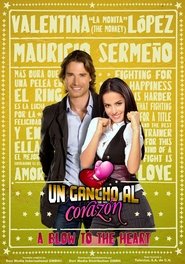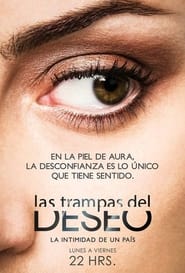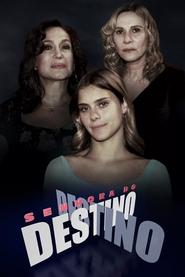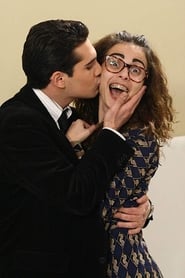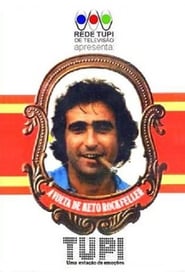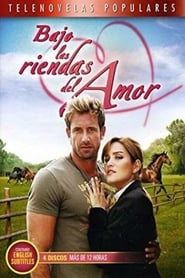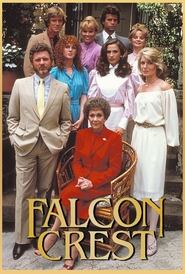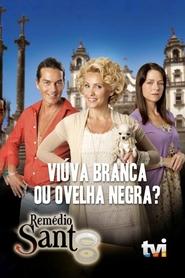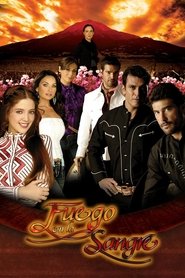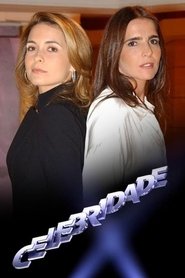Best Soap TV Series - Page 14
-
Men Wanted
2007
star 3The main theme of the series tells the story about private lives of a group of women who are frequent clients of “Angelica Style”, a prestigious beauty clinic. This group of women, Angelica, Nora, Mercedes, Samantha, Loreto, Vanesa, Lilí, Gabriela, Fernanda and Cecilia, have one thing in common: they have all failed to find the men of their dreams. As the stories blend, their different personalities are shown and their deepest wishes are revealed. They want to find a man who can understand them with freedom and love. -
Broken Angel
2013
star 7.4Santa Diabla is the story of Santa Martínez, a woman who seeks revenge for the murder of her husband Willy Delgado. -
Tu e Eu
2006
Tu e Eu
2006
-
Rebirth
2024
star 7.2After making a pact with Jequitibá, José Inocêncio becomes a mythical figure, known as the most successful cocoa farmer in the region. While still young, he wins the heart of Maria Santa. Their intense passion results in four children: José Augusto, José Bento, José Venâncio, and the youngest, João Pedro, who never had the opportunity to know his mother, as she dies while giving birth to him. This tragedy fuels José Inocêncio’s anger, blaming João Pedro for the loss of his great love. Throughout their lives, indifference and resentment mark the relationship between the father and his youngest son. As if the past weren’t enough, years later, the arrival of the mysterious Mariana puts all these emotions to the test when both father and son fall in love with the same woman. This situation reawakens feelings that were either dormant or previously unknown to them. -
Un gancho al corazón
2007
star 7.3Un gancho al corazón is a Mexican telenovela that began airing on Mexico's Canal de las Estrellas, beginning August 25, 2008. It began airing in the United States on Univision on June 22, 2009, with the show's run ending there on May 3, 2010. The telenovela is a production of Angelli Nesma Medina and is an original story by Adrian Suar starring Danna Garcia, Sebastián Rulli, and Laisha Wilkins. The telenovela is a remake of Argentine daily comedy Sos mi vida. -
Golpe bajo
2000
Golpe bajo
2000
-
Senhora do Destino
2004
star 8A story about people who succeed in life thanks to nothing but their own efforts. Maria do Carmo is the main character of the telenovela; a mother of five who struggle to be successful in life, but whose most important will be recovering the love of her daughter who was kidnapped when she was just months old. -
Maria i Aschimi
2007
star 3.8Maria, i Aschimi is the Greek adaptation of the Colombian telenovela Betty la Fea. The series ran from 2007 to 2008 on Mega Channel in Greece. The series starred Aggeliki Daliani in the title role of Maria and Anthimos Ananiadis as the boss who became the man of her dreams. -
Bajo las Riendas del Amor
2007
star 6.9Bajo Las Riendas del Amor is an American telenovela that aired from March 12 to October 5, 2007. It was filmed in Miami, Florida. -
Marron Glacé
1979
Marron Glacé
1979
-
Falcon Crest
1981
star 5.5Falcon Crest is an American primetime television soap opera which aired on the CBS network for nine seasons, from December 4, 1981 to May 17, 1990. A total of 227 episodes were produced. The series revolves around the feuding factions of the wealthy Gioberti/Channing family in the Californian wine industry. Jane Wyman starred as Angela Channing, the tyrannical matriarch of the Falcon Crest Winery, alongside Robert Foxworth as Chase Gioberti, Angela's nephew who returns to Falcon Crest following the death of his father. The series was set in the fictitious Tuscany Valley northeast of San Francisco. -
Remédio Santo
2011
Remédio Santo
2011
Remédio Santo is a Portuguese telenovela that started airing on TVI on 18 May 2011. -
Cocoon
2008
Cocoon
2008
de'Rainbow gang consists of five neighbors who are friends because their respective mothers are best friends, so they grew up and played together. Indra is the only guy who goes to a different school and can cook, Chacha is a beautiful and sporty girl who is the leader of the gang, Beby is a sassy girl who likes fashion, Tasya is a feminine girl who lives simply, while Helen is a smart girl who loves to read books and often make all the decisions. -
Burning for Revenge
2008
star 7.5Fuego en la sangre is a telenovela that began transmissions on January 21, 2008, through Mexico's Canal de las Estrellas network. Starring Adela Noriega, Eduardo Yáñez, Diana Bracho, and Guillermo García Cantú. It is the Mexican remake of the Colombian soap operas Las Aguas Mansas and Pasion de Gavilanes. The theme song called "Para Siempre" is sung by Vicente Fernández. The telenovela received TVyNovelas Award for Best Telenovela, in 2009. -
Celebridade
2003
star 8.2A successful businesswoman in the music industry sees her life fall apart after a young and mysterious woman starts work as her secretary. The scheming girl is totally obsessed by the famous businesswoman and she tries to steal everything from her, including her career. -
The King of The Cattle
1996
star 7.7In the struggle for land a vicious feud erupts between two men, who commit their families to a war without truce. Over two generations they are moved by love and by hatred in this epic saga of love for the land.



